Procrastination affects nearly everyone of us at some point, from students facing deadlines to professionals managing big company projects. It’s a pretty common human tendency, and its impact on our productivity, stress levels, and overall well-being can be pretty significant.
The good news is that procrastination isn’t a character problem, but it’s a habit that can be overcome with the right strategies to overcome procrastination and mindset shifts.

Strategies to Overcome Procrastination
1. Leverage Social Momentum

Join or create groups focused on productivity and accountability on apps like Discord, etc. It can be a study group, writing circle, or online community, I think that the energy of others working toward similar goals can be contagious.
Share your progress, challenges, and victories, because the combination of social support and gentle peer pressure can help maintain momentum when individual motivation runs out.
2. Use the “If-Then” Planning for Obstacles
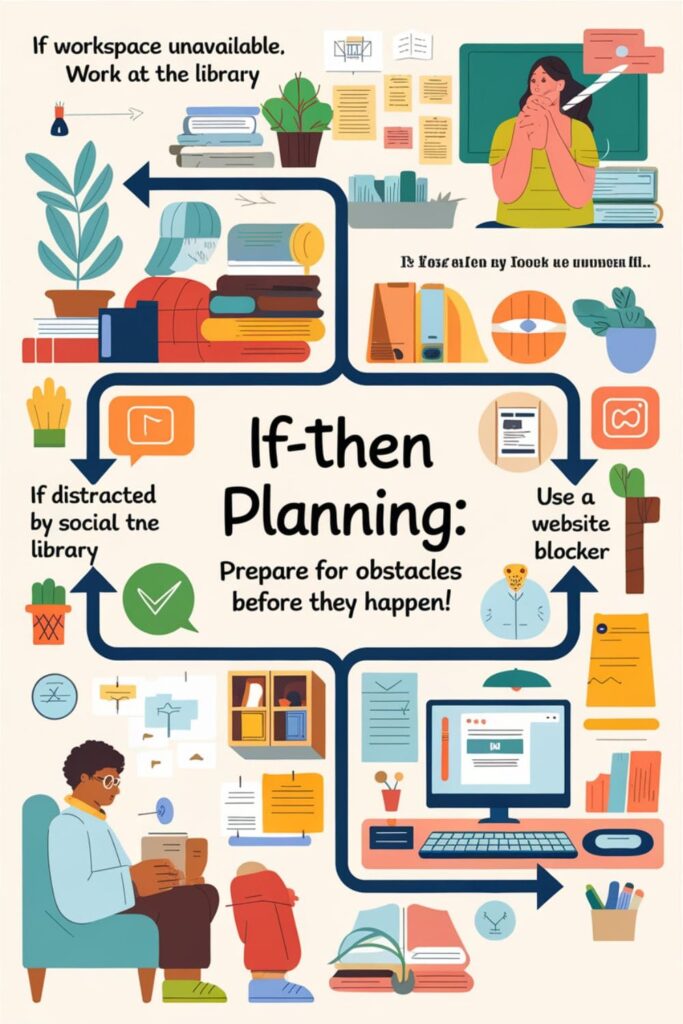
Anticipate potential obstacles and plan your responses in advance, like if your usual workspace is unavailable, then you’ll try work at the library, and if you feel overwhelmed, then you’ll break the task into smaller pieces.
If you get distracted by social media, then you’ll use a website blocker. This proactive approach prevents common procrastination triggers from derailing your overall progress.
3. Practice Emotional Regulation
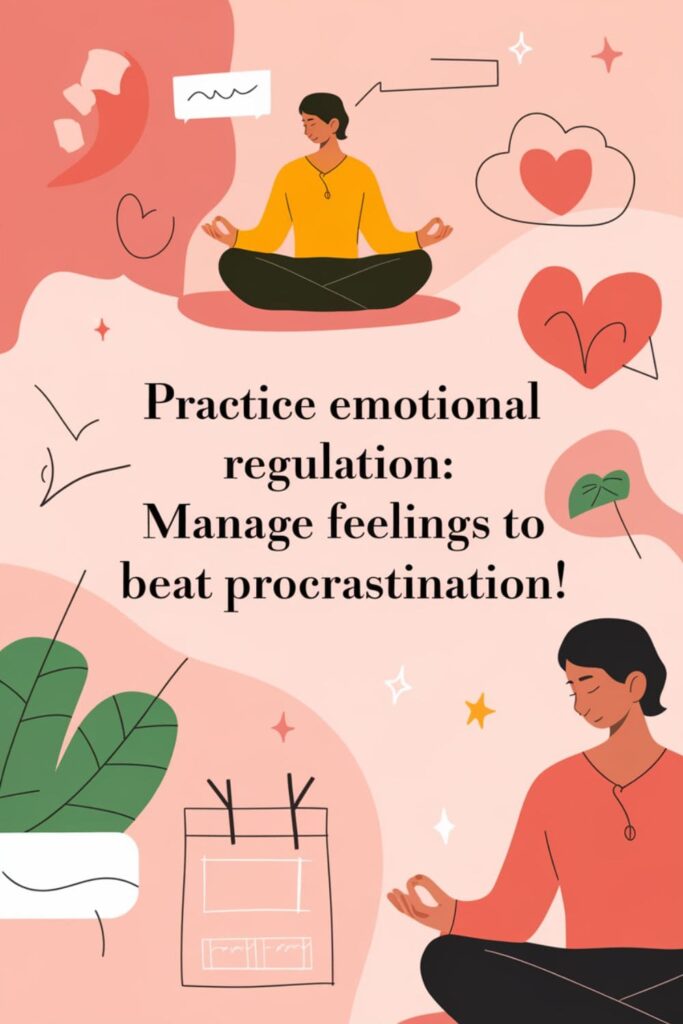
Procrastination generally serves as an emotional regulation strategy, like we delay tasks to avoid negative feelings like anxiety or overwhelm, so develop healthy ways to cope with these emotions instead.
Try deep breathing exercises, mindfulness meditation, or journaling etc. Just try to understand that discomfort is a normal part of growth, as it helps you push through it rather than avoid it.
4. Develop a Growth Mindset About Procrastination
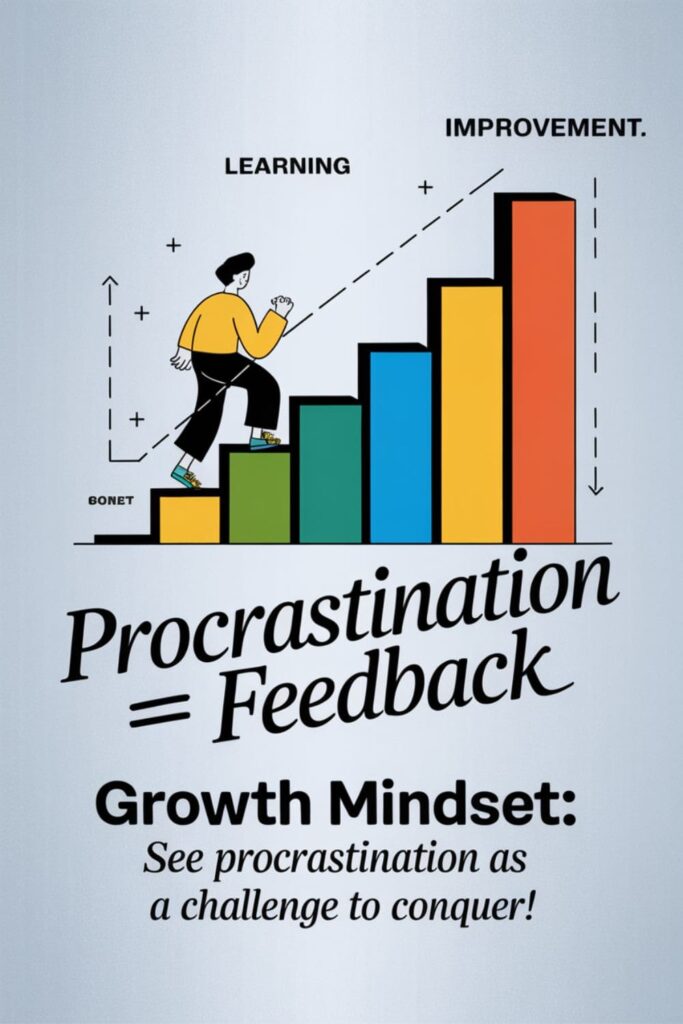
Try viewing procrastination as a challenge to overcome rather than a personal flaw, and also understand that your ability to focus and take action can be developed like any other skill.
When you catch yourself procrastinating, treat it as valuable feedback about what’s not working in your current routine and style.
This perspective shift from self-criticism to curiosity and learning helps break the negative cycle of procrastination and also shame.
5. Create Environmental Triggers
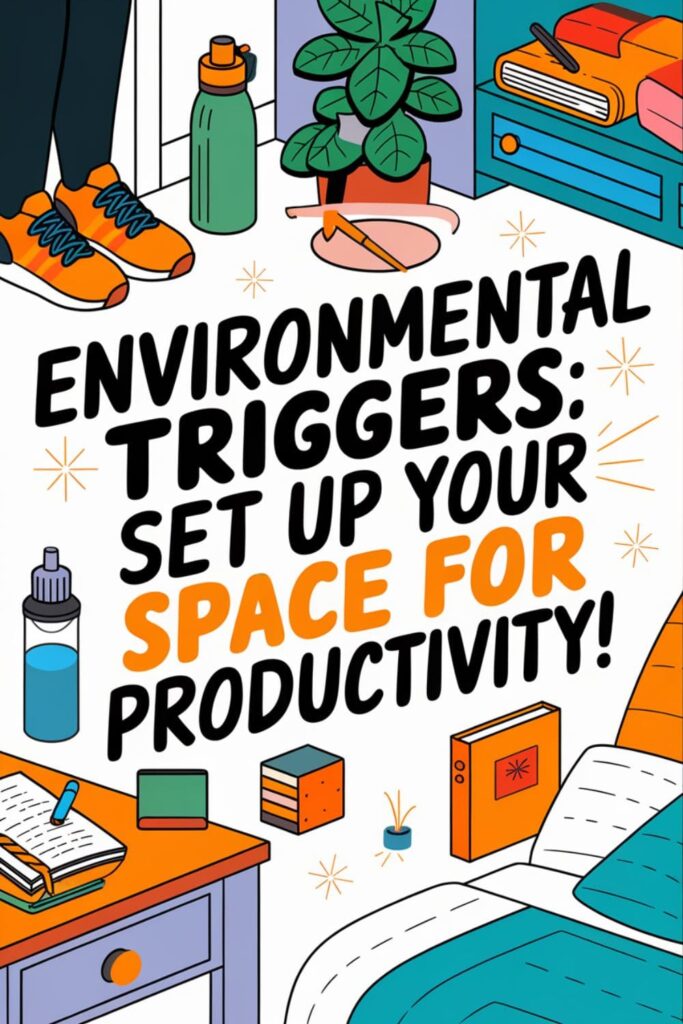
Set up your environment to automatically trigger those productive behaviors, by placing your running shoes by the door if you want to exercise in the morning, or keep your journal and pen on your nightstand for morning writing.
Position your water bottle visibly to remind yourself to stay hydrated. These physical cues bypass the need for conscious decision-making and reduce the resistance to starting tasks.
6. Create a Morning Routine
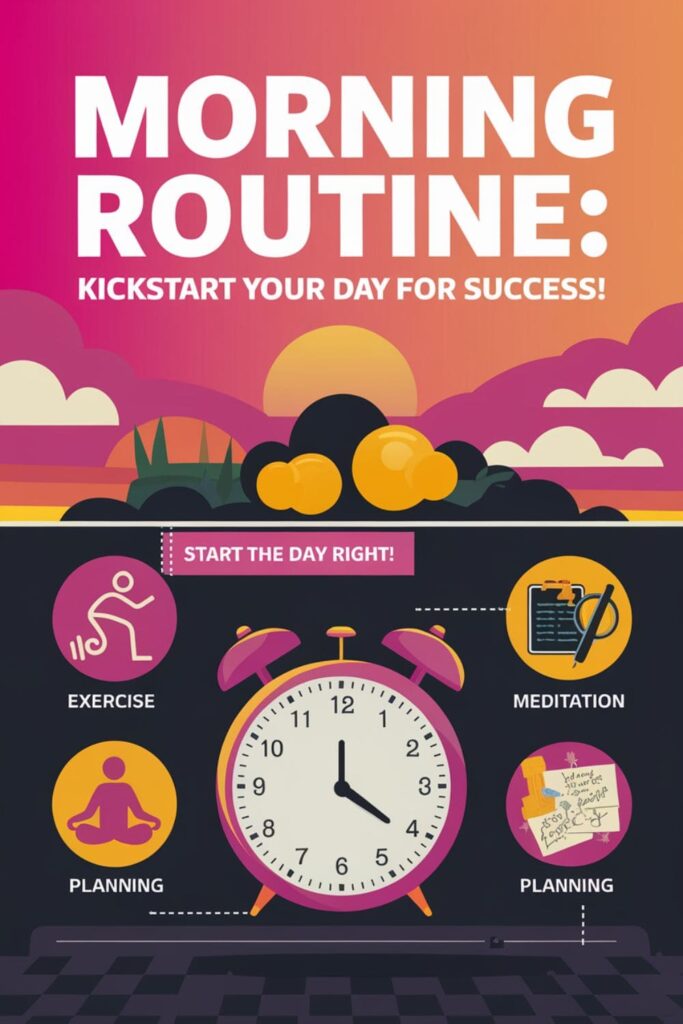
Start your day with a consistent routine that sets you up for the successful day, exercise, meditation, or planning can help get you in the right mindset. A strong morning routine creates the right momentum that carries throughout the day.
Your brain responds well to consistent patterns. Many high achievers attribute their success to having a solid morning routine that primes them for productivity. Just keep in mind that a morning routine only helps in achieving goals, you have to do the right things to achieve your goals.
Related: 10 Self-Care Habits For Stress-Free Mornings
7. Implement Strategic Procrastination
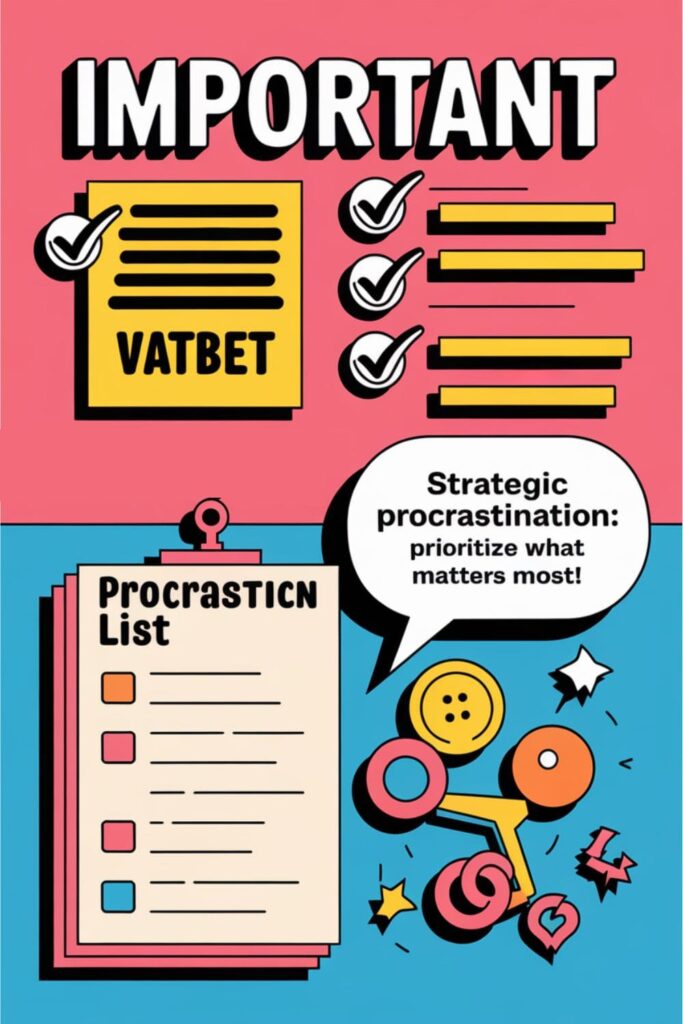
Not all procrastination is “bad”, sometimes it’s about prioritizing what matters the most, so learn to deliberately postpone less important tasks to focus on more important ones.
This isn’t avoidance, it’s strategic time management. Try creating a “procrastination list” of low-priority tasks that can wait.
8. Practice the “Do Something” Principle
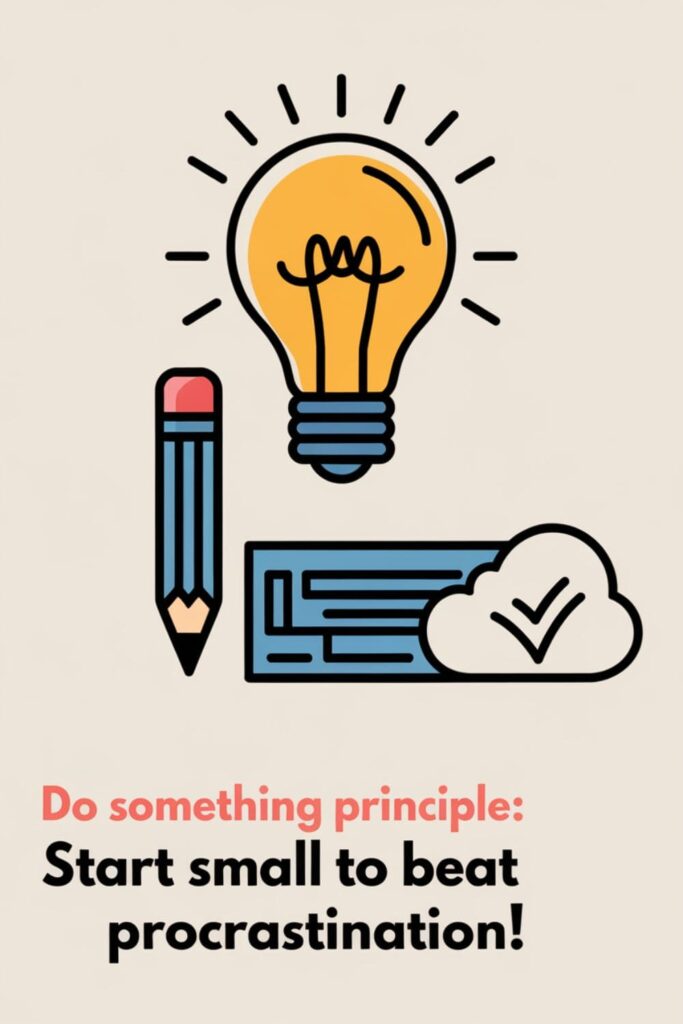
When motivation is low, commit to doing just one small aspect of the big task, and don’t worry about completing it, just start somewhere.
Maybe you’ll just open the document, write one sentence, or send one email. This principle works because action often precedes motivation, and not the other way around.
9. Use Visual Progress Tracking
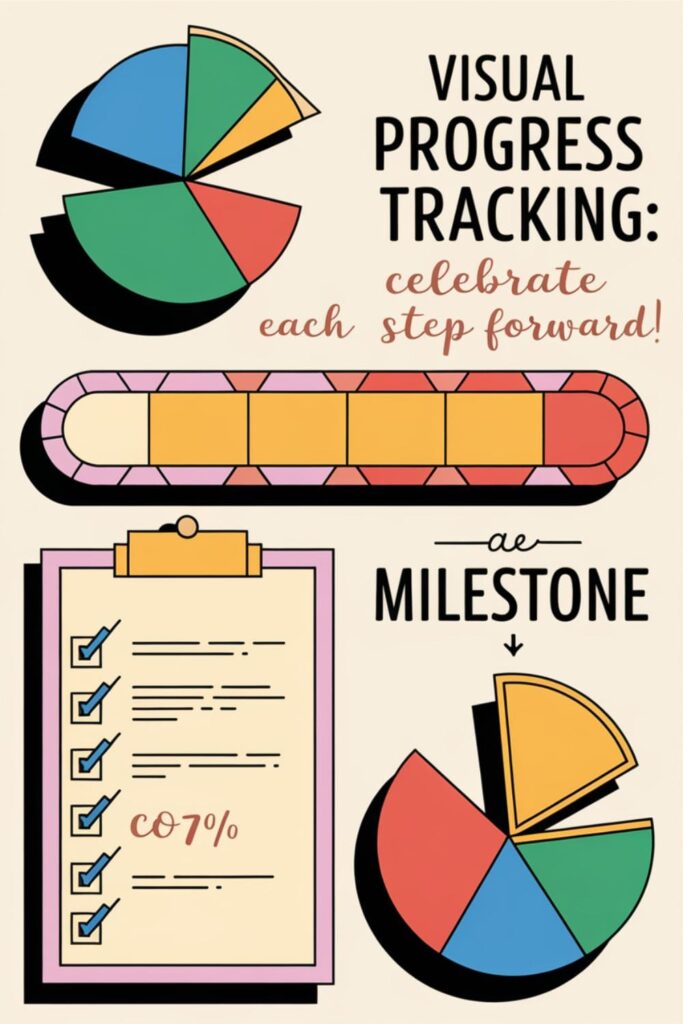
Create visible representations of your progress to maintain your motivation. Use physical or digital progress bars, checklists, or charts, etc. The visual feedback of seeing how far you’ve come can be really motivating.
Our brains are wired to respond to visual cues, and seeing progress physically represented can trigger the release of dopamine, encouraging more action.
10. Reward Progress
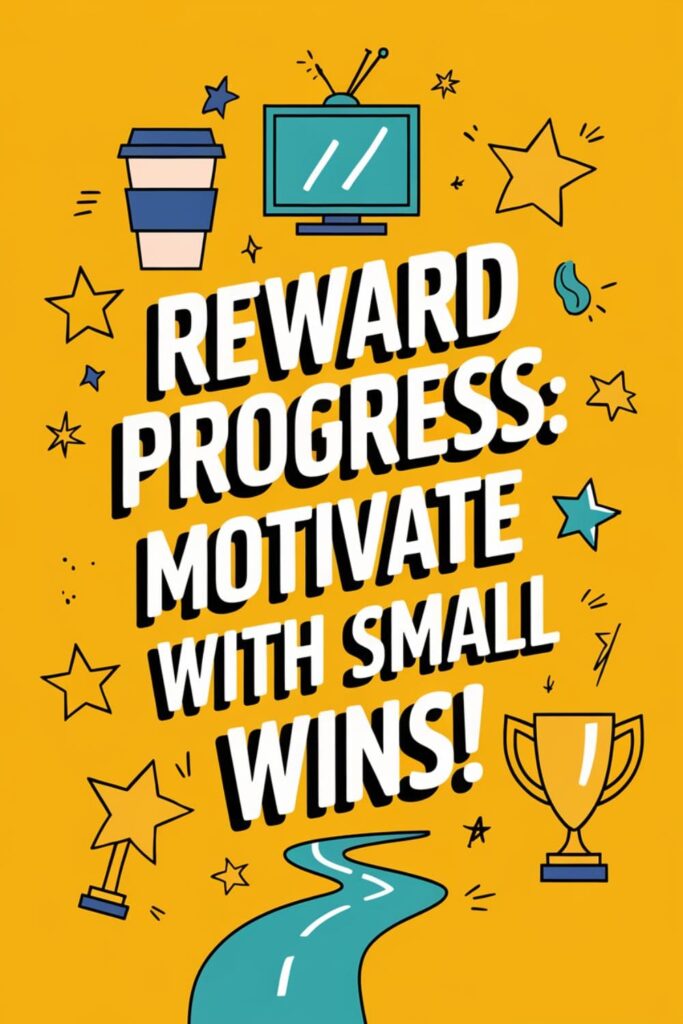
Try making up a reward system for completing tasks, and these rewards don’t need to be large or expensive, like maybe it’s a coffee break, a short walk, or watching an episode of your favorite show.
The point is to make the reward meaningful to you, as your brain responds well to positive reinforcement. This system helps create a positive association with task completion instead of viewing it as something to avoid.
Related: 10 Ways to Build Unshakable Confidence!
Conclusion
Overcoming procrastination is a journey, not a final destination, mainly because it requires a lot of patience, self-awareness, and consistent practice of these strategies, so start by implementing one or two techniques that resonate with you most.
Then gradually add more as these become habits, and always know that small, consistent changes in your behavior can lead to significant improvements in your productivity and well-being.
With time and practice, you’ll find yourself naturally resisting the urge to procrastinate and taking more consistent action toward your goals.

Pingback: 10 Life-Changing Tips for Setting and Achieving Your Goals!